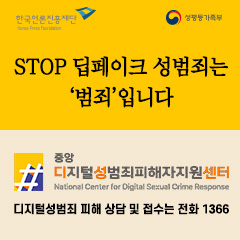
On March 30, 2023 at 10:30 a.m. at the National Palace Museum of Korea (located in Jongno-gu, Seoul), the Cultural Heritage Administration (CHA; Administrator: Choi Eung-chon) will introduce Daedongyeojido (Territorial Map of the Great East) to the press. It has recently been returned from Japan through the efforts of the Overseas Korean Cultural Heritage Foundation (OKCHF; Chair: Kim Jung-hee).
The existence of this map was made known when the previous owner expressed his intention to sell it. Upon obtaining the information, the OKCHF, with active administrative support from the CHA, carried out several thorough surveys. It eventually succeeded in its repatriation this March through close collaboration with related personnel.
Daedongyeojidowas first produced and published in 1861 by Kim Jeongho (ca. 1804–ca.1866), a Joseon-era geographer and publisher specializing in maps of the nation. It was republished in 1864 in the form of twenty-two accordion-style albums. The version retrieved from Japan is a woodblock-printed edition produced in 1864. It is colored and contains gapil* (hand-written revisions). The geographic information from Dongyeodo(Atlas of the Eastern State) is added as well. This edition is in fact a combination of Daedongyeojido and Dongyeodo
Dongyeodo* is a jeondo* (complete map) of Joseon-era Korea that is believed to have been consulted by Kim Jeongho as jeobon* (source material) for Daedongyeojido. A colored transcribed edition, Dongyeodo features geographic information on Joseon-era Korea, including traffic routes, military facilities, and places names amounting to roughly 18,000 items. In contrast, Daedongyeojido omits many place names and jugi* due to the difficulties involved in carving woodblocks.
* Dongyeodo (Atlas of the Eastern State): A transcribed copy / twenty-three albums (one album for the list of maps, twenty-two albums of maps)
* Jeondo: A complete painting or map
*Jeobon: Original version of a document or book before being revised or translated
* Jugi: Recording information in the margins on the history of respective territories, cartographic techniques applied, and instructions on how to use the maps
The edition returned from Japan is the first known example that compensated for the limitations of the woodblock-printed edition of Daedongyeojido by transcribing the annotations from Dongyeodo. With the addition of these annotations, Daedongyeojido is a modified version that was presumably produced owing to the wide distribution of Daedongyeojido. Since this edition presents a different organization and contents compared to other editions in Korean collections, its return from Japan carries considerable significance.
This Daedongyeojido edition consists of a total of twenty-three albums (one album for the list of maps, twenty-two albums of maps). The format follows that of Dongyeodo. Other editions of Daedongyeojido generally have no separate list of maps and are composed of twenty-two albums. Each album of both Dongyeodo and Daedongyeojido is produced in an accordion format. The unfolded albums each depict a 120 li (roughly 47 km) portion of the Korean Peninsula ranging from north to south. They can be placed in twenty-two layers to complete a map of the Korean Peninsula.
The most noticeable feature of the returned Daedongyeojido is that it provides detailed geographical information with a majority of the annotations from Dongyeodo transcribed on it. For example, in the second album where it illustrates Baekdusan Mountain and the neighboring regions, the Baekdusan National Boundary Monument* and the distances between military facilities are added, which are not noted in the woodblock-printed edition of Daedongyeojido. Moreover, in the fourteenth album, which depicts Ulleungdo Island and the neighboring region, is written a point of departure for ships heading to Ulleungdo that is not found in other editions of Daedongyeojido.
* Baekdusan National Boundary Monument: A monument erected on Baekdusan Mountain in 1712 (the 38th year of the reign of King Sukjong) to mark the boundary between Joseon Korea and Qing China
The specifics of the sections of the returned Daedongyeojido also differ from those of other editions currently held in Korea. As a case in point, the section “Jidoyuseol” is engraved and printed in the first album of other woodblock-printed editions, but is transcribed in the empty space of the maps in this returned edition. The content of the “Jidoyuseol” section in the returned edition is identical to that of Dongyeodo. In addition, Samcheok-bu in Gangwon-do Province and Ulleungdo Island are printed over two pages in other woodblock-printed editions, but are scaled down and shown across a single page in the returned edition. This was done to match the layout in Dongyeodo.
* “Jidoyuseol”: A text indicating the purpose of production of a map and its significance
The Daedongyeojido edition that is being introduced on this occasion will provide material for the study of the production and use of maps during the Joseon Dynasty. It will also expand the scope of research on Joseon-era geographic information as the first woodblock-printed edition with transcribed annotations from Dongyeodo that has been identified to date. It is especially valuable since examples of Dongyeodoand Gapja editions of Daedongyeojido and are rare.
The CHA and the OKCHF hope that the return and public viewing of this Daedongyeojido will enhance interest in the scientific cultural heritage of the Joseon Dynasty and inspire national pride in this aspect of Korean history. They plan to continue their robust efforts to locate and retrieve important Korean cultural properties housed overseas through active administration and the expansion of on-site cooperative networks. The acquisition of this repatriated Daedongyeojido edition was undertaken using lottery funds as a part of the Government Innovation project.
(한국어 번역)
한국다문화뉴스 = 심민정 기자ㅣ문화재청은 3월 30일 오전 10시 30분 국립고궁박물관(서울 종로구)에서 국외소재문화재재단(이사장 김정희, 이하 재단)을 통해 일본에서 환수한 《대동여지도(大東輿地圖)》를 언론에 공개한다.
이번 환수는 해당 유물 소장자가 매도 의사를 밝히면서 그 존재가 확인되었으며, 정보 입수 이후 문화재청의 적극적인 행정 지원과 수차례에 걸친 재단의 면밀한 조사, 관계자간 긴밀한 협업을 바탕으로 올해 3월 국내로 들여오는 데 성공했다.
《대동여지도》는 조선의 지리학자이자 지도 전문 출판자인 김정호(金正浩, 1804 추정〜1866추정)가 1861년에 처음 제작·간행하고, 1864년에 재간한 22첩의 병풍식 전국 지도첩이다. 이번에 환수된 《대동여지도》는 1864년 제작된 목판본에 가필, 색칠하고《동여도》에 기술되어 있는 지리정보를 필사(筆寫)해 추가한 것으로,《동여도》와 《대동여지도》가 하나의 지도에 담겨져 있다.
《동여도》는 김정호가 《대동여지도》의 저본(底本)으로 삼았던 것으로 볼 수 있는 조선전도로, 조선시대의 교통로와 군사시설 등의 지리 정보와 약 18,000여 개에 달하는 지명이 실려 있는 채색 필사본이다. 이에 반해 《대동여지도》는 목판으로 새겨야 하는 한계 때문에 많은 지명들과 주기(註記)가 생략되어 있다.
* 저본(底本): 개정, 번역 따위를 하기 전 본디의 서류나 책
* 동여도: 필사본(筆寫本) / 23첩(목록 1첩, 지도 22첩)
* 전도: 전체를 그려 놓은 그림이나 지도
* 주기(註記): 지도의 여백에 영토의 역사, 지도제작법, 지도사용법 등을 적어놓은 것
이번에 환수된 지도는 목판본인 《대동여지도》의 한계를 《동여도》의 주기 내용을 필사해 보완한 최초의 사례로 확인되며, 《대동여지도》가 보급되면서 변용된 형태로 추정된다. 국내에 소장되어 있는 《대동여지도》와는 다른 구성과 내용을 가지고 있기에 이번 환수는 더 큰 의미를 가진다.
구체적으로 살펴보면 ▲ 이번 유물은 총 23첩(목록 1첩, 지도 22첩)으로 구성되어 있다. 이는 《동여도》의 형식을 따른 것으로, 일반적인 《대동여지도》는 목록이 따로 없으며 22첩으로 구성되어 있다. 우리나라를 남북으로 120리 간격으로 구분하여 22층을 만들고, 각 층을 병풍식으로 접을 수 있는 첩으로 만든 것은 《동여도》와 《대동여지도》가 같다.
▲ 무엇보다도 가장 주목할 것은 《동여도》의 주기 내용이 대부분 필사되어 상세한 지리정보를 제공하고 있다는 점이다. 예를 들어, 백두산 일대가 묘사되어 있는 제2첩의 경우 《대동여지도》 판본에는 없는 ‘백두산정계비’와 군사시설 간의 거리가 필사되어 있다. 또한 울릉도 일대가 묘사되어 있는 제14첩에는 《대동여지도》에는 기재되어 있지 않은 울릉도로 가는 배의 출발지 등의 내용이 필사로 적혀 있다.
▲ 세부적인 구성에서도 그동안 국내에서 확인된 《대동여지도》와는 다른 양상을 보인다. 대표적인 예로, 《대동여지도》의 지도유설은 1첩에 간인(刊印)되어 있으나 이번 유물은 지도의 빈 공간에 필사되어 있으며 그 내용도 동여도의 것과 같다. 또한 《대동여지도》 판본에서는 2면에 걸쳐 인쇄되어 있던 강원도 삼척부와 울릉도 일대가 1면으로 축소되어 배치되어 있는 점은 《동여도》의 배치 형식을 따른 것으로 보인다.
* 지도유설(地圖類說): 제작 목적, 지도의 중요성 등을 밝힌 글
* 간인(刊印): 판을 새기어 간행물을 인쇄함
이번에 공개된 《대동여지도》는 국내에서 최초 확인된 《동여도》의 주기 내용이 필사된 《대동여지도》 판본이며, 국내 소장된 《대동여지도》 갑자본과 《동여도》가 희소하다는 점 등으로 볼 때 조선의 지도 제작과 활용을 살펴볼 수 있는 연구 자료일 뿐만 아니라 조선시대 지리 정보 연구의 범위를 확장하는 계기가 될 것으로 기대된다.
문화재청과 재단은 이번 환수 및 공개가 조선시대 과학문화유산에 대한 관심과 자긍심을 고취할 수 있는 기회가 되길 바라며, 앞으로도 적극행정과 현지 협력망 확대를 통해 국외 중요 한국문화유산의 발굴과 환수에 최선을 다할 계획이다. 이번에 환수된 《대동여지도》매입은 정부혁신 사업으로 복권기금으로 추진되었다.





















